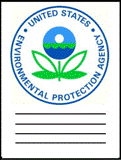United States Environmental Protection Agency

United States Environmental Protection Agency: Publications
Document Type
Article
Date of this Version
2005
Citation
Environmental Pollution (2005) 137: 165-176
Abstract
The main aim of the international UNECE monitoring program ICP Waters under the Convention of Long-range Transboundary Air Pollution (CLRTAP) is to assess, on a regional basis, the degree and geographical extent of the impact of atmospheric pollution, in particular acidification, on surface waters. Regional trends are calculated for 12 geographical regions in Europe and North America, comprising 189 surface waters sites. From 1990-2001 sulphate concentrations decreased in all but one of the investigated regions. Nitrate increased in only one region, and decreased in three North American regions. Improvements in alkalinity and pH are widely observed. Results from the ICP Waters programme clearly show widespread improvement in surface water acid-base chemistry, in response to emissions controls programs and decreasing acidic deposition. Limited site-specific biological data suggest that continued improvement in the chemical status of acid-sensitive lakes and streams will lead to biological recovery in the future.
Included in
Civil and Environmental Engineering Commons, Environmental Chemistry Commons, Environmental Health and Protection Commons, Water Resource Management Commons

